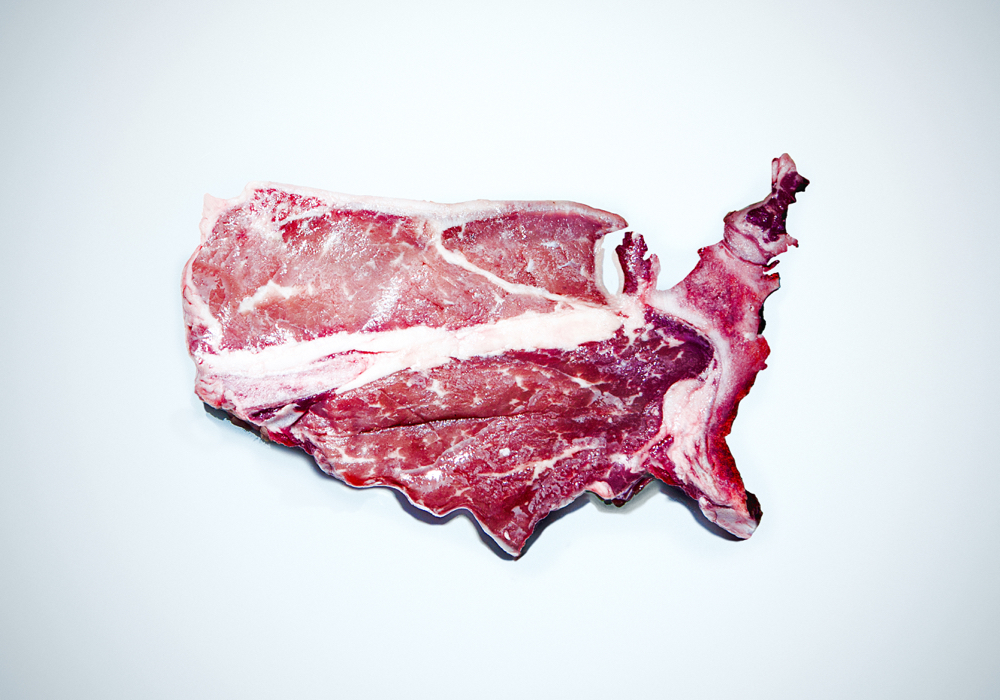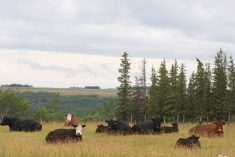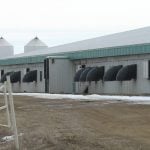Maintaining demand and mindshare for Canadian beef is a priority for Canada Beef, particularly during high prices and tight supplies. While consumer attitudinal surveys indicate price, quality and freshness drive purchases, some consumers still want assurances that the beef they purchase was sustainably produced and raised with care.
Communicating the values of sustainable beef production and the progress of the Canadian beef industry to consumers — many of whom are several generations removed from any form of agricultural production — involves making the positive outcomes of complex systems such as soil microbiomes, managed grazing and riparian management meaningful to customers.
Recently, Canada Beef collaborated with the Canadian Roundtable for Sustainable Beef and the Public and Stakeholder Engagement Program on a six-week digital campaign highlighting the Canadian beef sector’s environmental sustainability progress. The partnership allowed us to combine funds and resources for a more impactful, wider-reaching campaign.
Read Also

How and why the Canadian Cattle Association advocates for domestic change
Tyler Fulton, Canadian Cattle Association president, explains how and why the association advocates for beef producers domestically.
The “Confessions of a Canadian beef farmer” campaign was anchored by a lead story video and three extension videos that provided concrete examples of sustainability progress. Alberta feedlot operator Andrea Stroeve-Sawa was the face and voice of the campaign. Key messages leveraged data and information from the Canadian Roundtable for Sustainable Beef’s national beef sustainability assessment.
The campaign achieved a total of 19.1 million impressions with a click-through rate of 1.48 per cent, besting the 0.48 per cent average click-through. YouTube generated 54 per cent of the impressions and 85 per cent of the clicks. In addition to digital advertising, an updated benchmarks webpage on the roundtable’s website served as a campaign landing page.
The past year presented challenges for beef lovers and 2024 per capita consumption fell 1.7 per cent year-over-year to 15.97 kg/person, according to Statistics Canada and Canfax. During Canada Beef’s fiscal fourth quarter (March 2025), retail beef prices established a new all-time high at $25.85/kg, 31.4 per cent higher than March 2024 and 34 per cent above the five-year average for March. At the same time, prices for pork and chicken fell, and retail price ratios for these competing proteins were record wide.
To acknowledge and thank Canadian consumers for choosing high-quality beef, Canada Beef created a new video, “Thank you for supporting Canadian beef.” The video outlines how choosing Canadian beef supports hardworking farmers and ranchers who raise the beef, as well as processors, truckers and retailers who, together, ensure that tasty beef gets to the customer’s table. The video was broadcast as a TV commercial on prime-time news and select morning TV time slots, across the country from June through July.
On the food-service side, Canadian Beef Centre of Excellence chefs Mathieu Paré and Cameron Pappel recently conducted two Canadian beef-tasting sessions as part of the Culinary Federation 2025 Conference in Moncton, N.B. National chef members, young chef members and culinary students participated in a tasting activity to learn about the eating quality and characteristics of top-performing Canadian beef cuts. The collaboration resulted in valuable tasting notes and data, which will inform the development of new food service training resources by the centre.
Tight cattle supplies and strong demand for beef saw the proportion of imported beef consumed in Canada in 2024 increase nine per cent to 25.36 per cent compared to 2023 (Canfax). Recognizing that larger imports help keep beef on the centre of the plate and support beef market share as we move through the bottom of the cattle cycle, Canada Beef launched outreach efforts on the high and growing prevalence of iron deficiency in Canada, the value of beef for the prevention and management of iron deficiency.
This type of outreach is essential due to new iron deficiency guidelines published in fall 2024 that will see more Canadians diagnosed with iron deficiency.
In addition to a one-week campaign during World Iron Awareness Week that reached an estimated 70 million consumers, this new information was disseminated to health professionals in May through Thinkbeef.ca via a webinar for health professionals. The webinar, “Iron Deficiency in Canada: A Growing Concern Dietitians Can Address,” attracted more than 1,100 registrations.
Of course, a sustainable beef industry encompasses strong and reliable market access for Canadian beef.
The outcome of Canada Beef’s recent multi-country demand-building mission to support Canadian beef suppliers, importers, distributors and retailers produced excellent results. In Vietnam, Canada’s fifth-largest beef export market, Canada Beef held a promotion at Emart and an importers’ reception. A special thanks to Alberta Agriculture Minister RJ Sigurdson and the government of Alberta team for participating in both events. Alberta Beef Producers past-president, CCA director and beef producer Brodie Haugan joined Canada Beef’s meetings and events.

In the Philippines, Canada Beef hosted two separate Canadian beef promotional events in Manila. The Canadian Trade Commissioner Service joined the mission alongside Minister Sigurdson, the Alberta government team and Haugan.
In Japan, the team met with local importers/distributors in Osaka and organized a Canadian beef demand-building seminar for 60 Japanese meat industry professionals held at the Canadian Pavilion at Osaka World Expo 2025.
In Korea, the team attended the Seoul Food Show where Canada Beef was exhibiting. In addition to being interviewed by the media, Canada Beef joined the first day of a two-week-long Canadian beef promotional marketing campaign at a major Korean retailer.
Many thanks to CCA representatives Dennis Laycraft and Jennifer Babcock, who joined the seminar in Osaka and activities in Seoul in support of expanding the footprint of high-quality Canadian beef.
















